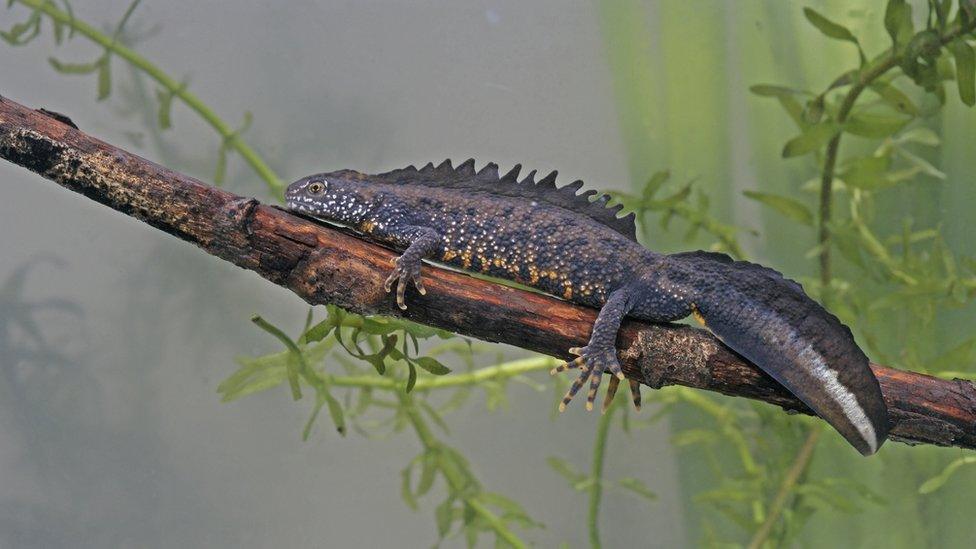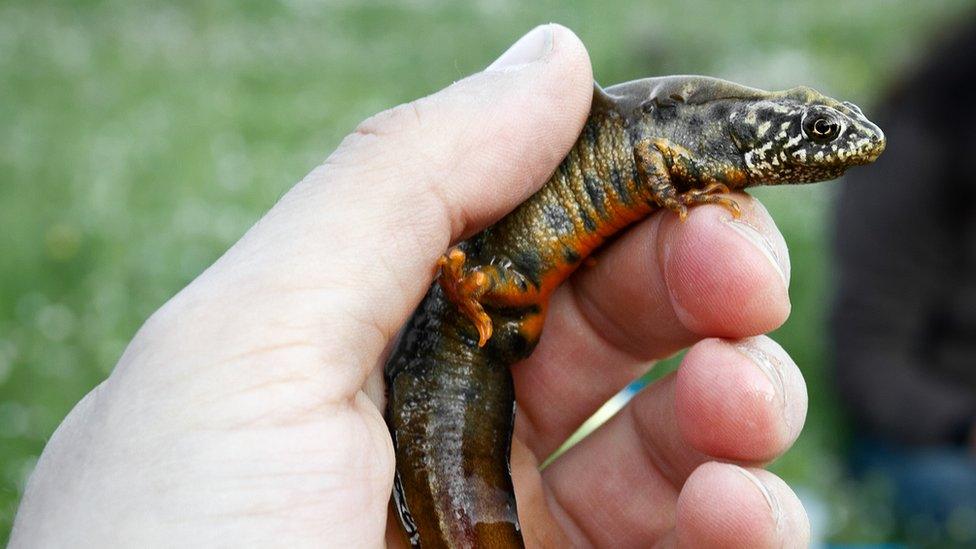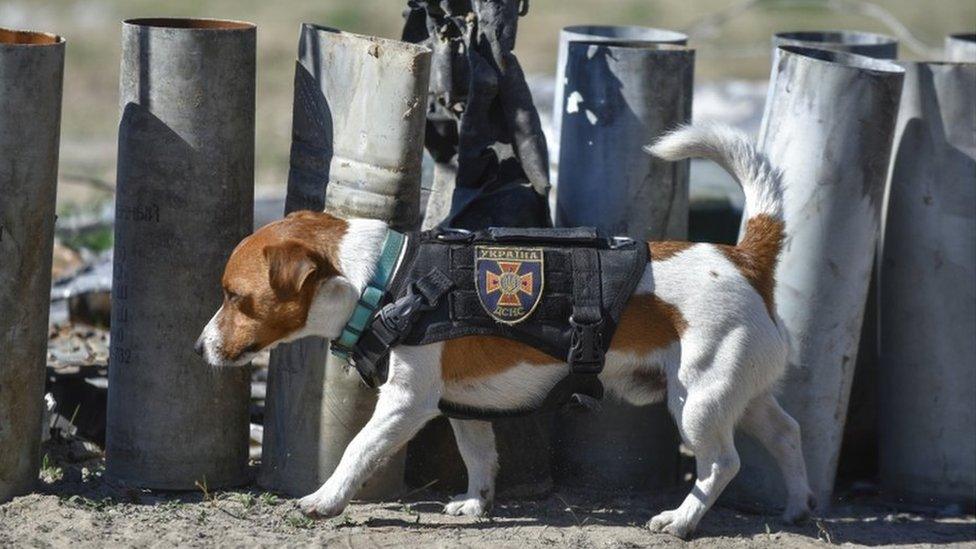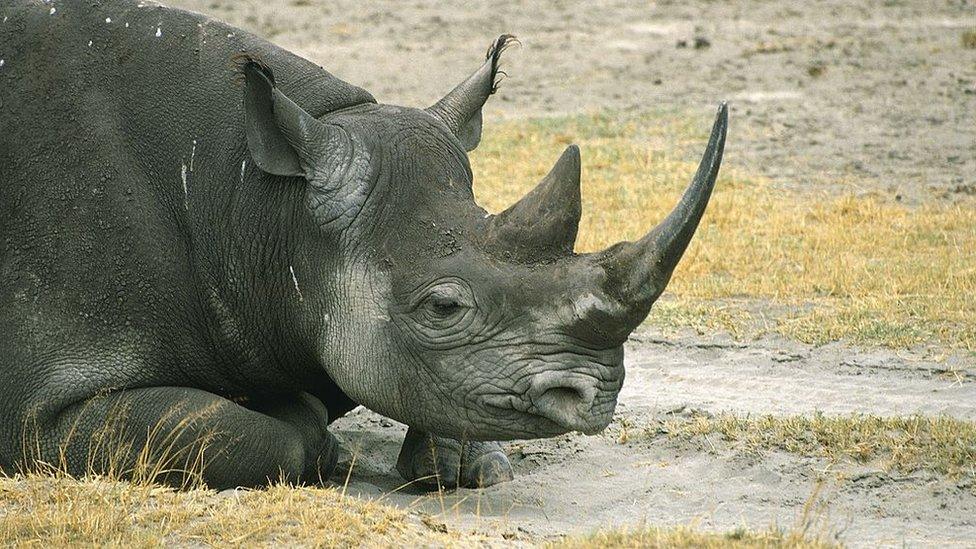Doggy detective sniffs out building sites for rare newts
- Published
- comments
Check out Flo sniffing out rare newts!
This dog is on paw-trol and has been given a very special mission - to find and save rare newts!
An engineering company has been using specially-trained sniffer dogs to survey potential building sites in Warrington, Cheshire, to make sure they're not disturbing any crested newts.
Crested newts are very rare and are protected across Europe. In the UK, they are protected under the Wildlife and Countryside Act, 1981, which means it's illegal to deliberately hurt great crested newts, damage their habitat or to take their eggs, among other things.

Great crested newts are protected all across Europe
The great crested newt is the biggest that can be found in the UK - they can grow up to 17cm
They can live to be 25 years old
They have warty black skin with spotted sides, and bright orange bellies
The spots they have can help identify different great crested newts, as the patterns are as unique as fingerprints
Their skin secretes a milk-like acid to stop predators eating them
Paws for Conservation is the company that trains and hires out the dogs. They have dogs that can find all sorts of rare creatures - they're currently training up pooches to sniff out dormice and water voles.
The dogs are trained using something called "odour identification".
Tins are placed underneath funnels, and in most tins there will be something that smells nice or is used in other training exercises (called "distraction smells"), but in one there will be a crested newt.
Nature conservation means protecting our environment and the wildlife and plants that live in it for future generations
This includes everything from protecting species from extinction, maintaining and restoring habitats and preserving natural resources such as water, wood or fuel

Great crested newts can be easily identified by their bright orange bellies
Paws for Conservation founder Rachael Flavell said: "It's basically a game for them... they go out, they find the scent and then they get to have a huge play."
On their website, they say they use dogs because they can search areas without disturbing nearly as much of the wildlife as humans would, and can do it quickly - according to the website, their dogs can search "an area of 100 square metres in less than 45 minutes, depending on the vegetation".
- Published10 May 2022

- Published18 January 2023
- Published9 June 2022

